
Ok, the climate and ecological emergency may be the biggest challenge ever faced by humanity, but remember, as former UN climate chief Christiana Figueres pointed out, ‘impossible isn’t a fact, it’s an attitude’. So let’s create the future we want, and create it together fast.

Know the truth
A great place to start is getting your head around the situation we’re in.
Spoiler alert: It’s not great.
What does the science say?
The science is clear: the world is heating and the breakdown of our climate has begun. Even now, warmer temperatures are having a catastrophic impact on our planet, causing an increase in extreme weather events, floods, storms and droughts, along with rising sea levels, heat stress in our oceans and degradation of our soils. Extreme weather events are having devastating impacts on agriculture, costing taxpayers billions of dollars and leaving millions of people in need of humanitarian aid.
If we keep going as we are, the coming years will bring more wildfires, unpredictable super storms and scorching heatwaves. Rising sea levels and droughts could render vast tracts of land uninhabitable through flooding and desertification, putting food supplies at risk. Receding glaciers could cut off fresh water supplies for millions. Mass migration and famine are likely to take us towards civil unrest and ultimately war, raising the terrifying possibility of societal collapse. Find out more about climate science here.
What about biodiversity loss, land degradation and pollution?
Around the world, biodiversity are being annihilated at a terrifying rate. Humanity’s collective action has declined population sizes of thousands of species of mammals, birds, fish and reptiles by an estimated 60% since the 1970s. We are losing our crop-pollinating insects and soil-rejuvenating earthworms. Species are going extinct 100 to 1,000 times faster than they should be doing naturally. Scientists say we are entering the ‘sixth mass extinction’ event – with one million species at threat of extinction over the next few decades due to human intervention. The consequences will be catastrophic if we do not act swiftly.
Millions of trees are being felled to make room for our ever-increasing demands for palm oil, clothes and meat, as well as logging practices to meet construction demands for building materials. Our soils are being degraded through erosion and over-ploughing. According to a senior UN official we have just 60 years of harvests left. We are running out of raw materials and using up our resources. Our rivers are being poisoned and our seas are acidifying and filling up with plastic. The air is so toxic that it kills millions each year.
Wow, we really are in a mess. What now?
In November 2019, a group of more than 11,000 scientists from 153 countries declared “clearly and unequivocally that the Earth is facing a climate emergency” and that without deep and lasting changes, the world’s people face “untold human suffering”.
In February 2020, a hard-hitting report from JP Morgan economists warned that human life “as we know it” could be threatened by climate change, and that without action being taken there could be “catastrophic outcomes”. The report added that climate change “is a global problem but no global solution is in sight.”
These climate and ecological crises can no longer be ignored or denied. Yet in spite of promises from governments, greenhouse gas emissions continue to rise steeply and biodiversity loss shows no sign of slowing. The time has come to take action. The future of our children, and our grandchildren, is at stake. We cannot afford to wait another second.
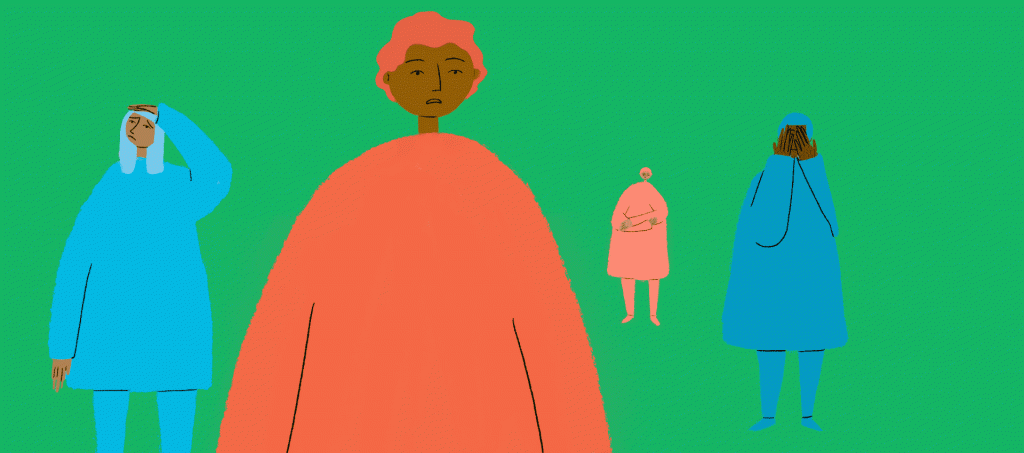
Take collective action to pressure governments to act now
Individual actions mean you are doing your bit to help, perhaps by altering your diet or mode of transport, but the answer to Earth’s emergency must involve political, collective action proportionate to the scale of the crisis – and there are countless ways to get active.
“Until you start focusing on what needs to be done rather than what is politically possible there is no hope. We cannot solve a crisis without treating it as a crisis. We need to keep the fossil fuels in the ground and we need to focus on equity. And if solutions within this system are so impossible to find then maybe we should change the system itself.”
– Greta Thunberg
So what needs to change?
What we need is fundamental system change, and that can only come from government action. So now we need to overcome our inertia and emotional barriers and focus our time, energy and efforts on driving that change.
Governments are due to submit their next set of pledges at COP26 in Glasgow next year. We need to see a concerted effort from governments across the world to take us off our current path. If governments don’t seriously improve their policies to reduce greenhouse gas emissions in time for COP26, within the Paris Agreement they won’t be obliged to review them again for another five years. By then it will be far too late to prevent heating of more than 1.5°C. It is crucial that COP26 agrees to the outlawing of all new investments by banks, financial institutions and governments in new fossil fuel infrastructure and production.
Stephan Harrison, Professor of Climate and Environmental Change, University of Exeter, said in a recent lecture: “We have all the resources we need to deal with this. There is nothing magical about reducing carbon dioxide in the atmosphere. There is nothing magical about the greenhouse effect. We know exactly how to deal with it. We just don’t have the political or economic will to do this.”
Collectively we must urgently put pressure on governments to act now, and to act radically.
Who has spoken out about political pressure?
As former Executive Secretary of the United Nations Framework Convention on Climate Change, Christiana Figueres, writes in her new book The Future We Choose: Surviving the Climate Crisis: “It’s time to participate in non-violent political movements wherever possible.”
As Coretta Scott King, American Author, activist, and civil rights leader, said: “It doesn’t matter how strong your opinions are. If you don’t use your power for positive change, you are, indeed, part of the problem.”
Or in the words of the Dalai Lama: “It is not enough to be compassionate – you must act.” Indeed. We must act. And we must act now.
As Gandhi said, “the difference between what we do and what we are capable of doing would suffice to solve most of the world’s problems.”
After more than 40 years of their warnings being ignored or downplayed, even scientists are now being forced to take bolder steps to try to ensure that their voices are heard, declaring the risk of “catastrophic and irreversible damage to our planet” means they have “a moral duty to act now… to protect humanity’s only home.” The scientists who have been taking to the streets, dressed in their white lab coats, say they believe that declaring the risk of “catastrophic and irreversible damage to our planet” means they have “a moral duty to act now… to protect humanity’s only home.”
What about social justice?
Climate and environmental justice is far more than the reduction of emissions alone. There will be little progress if we separate the ecological issue from the social factors driving extractivism and destruction. Without social justice for marginalised and oppressed peoples we cannot build a sustainable future.
Black and brown people in the Global South are disproportionately affected by climate change and ecological destruction, for which the Global North is largely responsible. In the UK, we must acknowledge our colonial past and that racist structures are still in place. If we do not acknowledge these injustices in our wider society, we will not be able to confront them within the wider climate movement.
Learn more about the urgent need for global justice and international solidarity in this powerful talk with Ghanaian Pan-Afrikan Internationalist Activist, Kofi Mawuli Klu.
So let’s take to the streets and demand change.
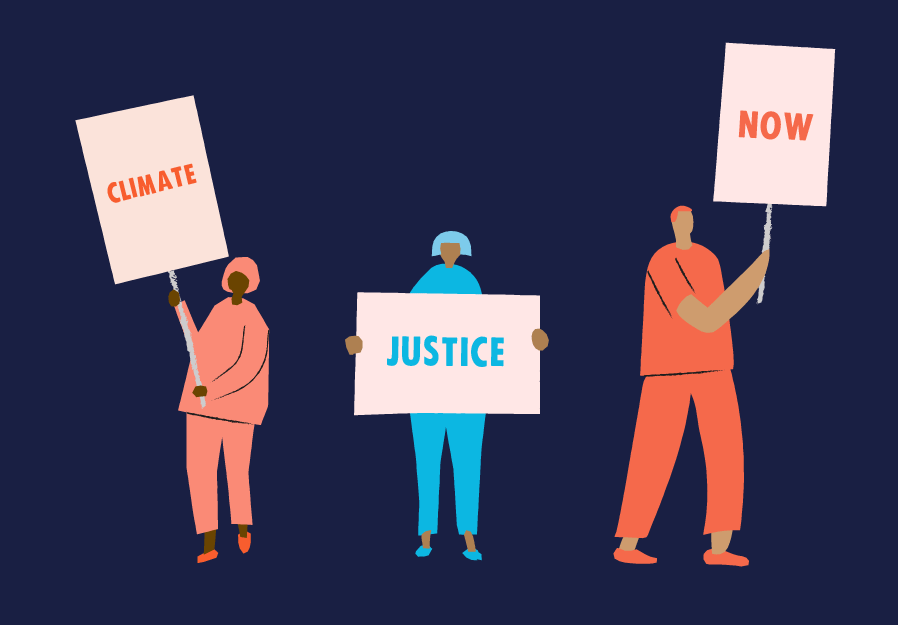
Get Out On The Streets
There have never been so many options for concerned citizens, from traditional NGOs such as Friends of the Earth and Greenpeace, to more radical groups such as Extinction Rebellion and the school strikes movement, run by the UK Student Climate Network.
Conventional approaches of voting, lobbying, petitions and protest have failed because powerful political and economic interests prevent change. To achieve our Gigantic Change we need a change of strategy.
Which group is right for me?
I want to fight for social justice for those on the front line of climate change: Global Justice Rebellion
I want to put pressure on my local council: Friends of The Earth
I want to support campaigns to stop deforestation and arctic drilling: Greenpeace
I want to focus on keeping fossil fuels in the ground: 350.org
I’m young and want to take to the streets: Fridays for Future & UKSCN
I want to join creative protests with non-violent civil disobedience tactics: Extinction Rebellion
I’m in the US and want to push for a Green New Deal: Sunrise Movement
I want to raise voices of diverse youth in the US in the fight for climate justice: Zero Hour
I’m keen to focus on rainforests: Rainforest Action Network
I want see what others are doing & be inspired: The Eden Project
I want to fight the root causes of global poverty & injustice: War on Want
I want to improve media standards so more people can read about this: Covering Climate Now
I want to make our voting system count: Make Votes Matter
I want to help expose wrongdoing: Global Witness
I want to stop fast fashion: Fashion Revolution
I want to change the global economic system: NEON
I want to transform the legal system to give nature a voice: Stop Ecocide
I want campaign on better food systems: WWF
HOW CAN WE GET DIFFERENT GROUPS WORKING TOGETHER?
Many NGOs and campaign groups are seeing the necessity to come together in a movement of movements to help focus efforts and solve these gigantic issues. If you work for an NGO, non profit, business-for-good, charity or any local group advocating for change – sign up and share the movement of movement concept.
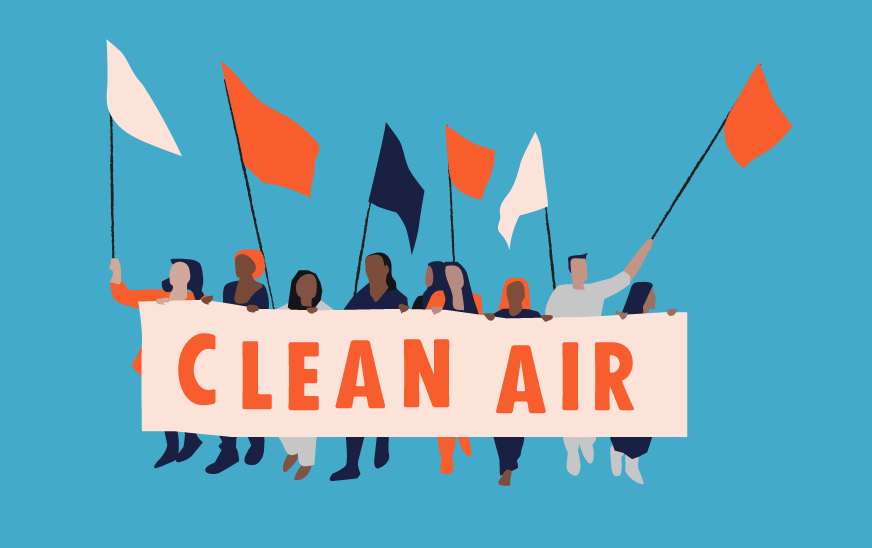
Campaign Locally
We can’t make this Gigantic Change alone: challenge yourself to find other people nearby you to figure out next steps. Search online for established local groups, community projects, likely allies and friendly meeting spaces.
Contact national organisations for support in setting up local branches if none exist in your area, Friends of the Earth & Greenpeace are great places to start. They support groups with training, advice and resources so that they can campaign for their local councils to adopt a Climate Action Plan. Take the initiative and follow activist groups like Fridays For Future and Extinction Rebellion, by engaging and inspiring new people, self-organising into groups, agreeing focus areas, actions and individual roles to grow quickly and mobilize efficiently. XR offers support in achieving this.
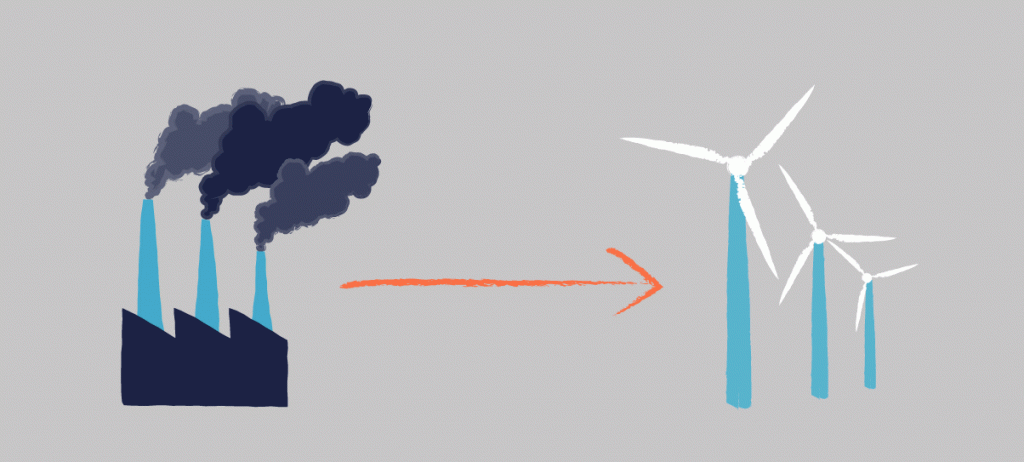
Get my boss to transition my company to carbon zero
If you have a unionised workplace, ask your union to get involved. Petition or lobby your company to carry out an audit of its carbon footprint – from its energy emissions and transport to the staff canteen. Then push for it to commit to reducing its carbon emissions, moving to net zero.
There are brilliant organisations such as The Planet Mark and B Corp who are helping companies with this transition, who you can reach out to for guidance and advice.
Make My MP Do Their Job Better
Try They Work For You, which takes data from the UK parliament to show you how your MP voted on issues such as the third runway at Heathrow, fracking, and carbon capture and storage. You can write to them to demand climate action on a local and national level.
The Guardian’s polluters project also provides a handy guide to how MPs have voted on key environmental legislation, and Campaign Against Climate Change gives some help on how to contact them, including letter templates.
Other campaigns who would love your support:
DivestParliament
Hope For the Future
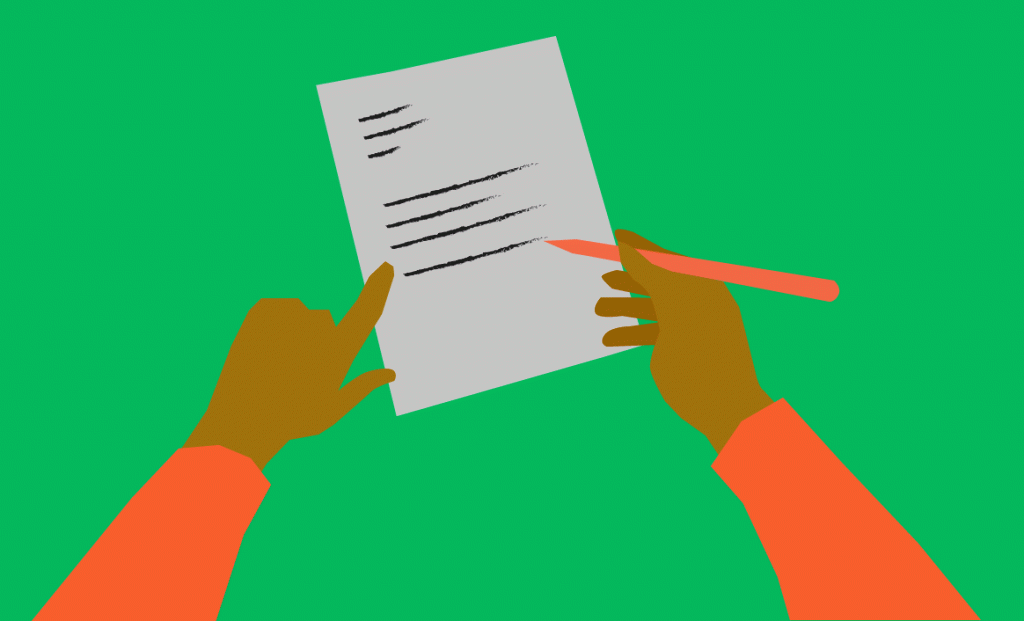
Ok that’s great, but I’m not ready to join a movement. Yet. How can I take action as an individual?
Whilst the biggest changes can only be achieved through collective, political action, you can still make a significant difference through the way you travel, what you eat, how you shop and more.

Ditch planes for trains
Did you know a flight from London to Rome produces 22 times more carbon emissions than taking the train? Flying also encourages people to travel longer distances, at huge carbon costs. One return transatlantic flight emits the same amount of carbon as 13 years of a family’s electricity emissions combined. You might also be surprised that only 18% of the world’s population has ever set foot on a plane, yet everyone pays the price of the emissions.
International rail can often be more expensive than flying – whilst this is still the case, how about seeking out the hidden gems in your own country?
But surely if I offset my carbon, it’s not that bad?
Don’t be fooled by carbon offset schemes – an EU study found that 85% of offsets failed to reduce emissions. Offsetting simply allows polluters to pay others to reduce their emissions, so they can continue to pollute. In the words of Kevin Anderson, Professor of Energy and Climate Change at The University of Manchester: “Offsetting is worse than doing nothing. It is without scientific legitimacy, is dangerously misleading and almost certainly contributes to a net increase in the absolute rate of global emissions growth.”
In the words of a recent headline in The Financial Times:
“The only way to hit net zero by 2050 is to stop flying”
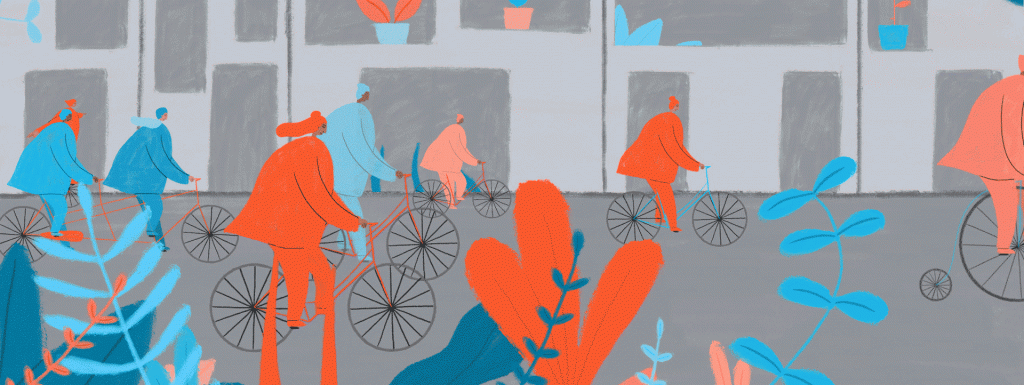
Get Out of My Car
Cycling, walking and public transport*, must be the future we aim for in our cities. Not only does this keep us fit, it also improves the air quality by reducing pollution from the 1 billion plus cars on our roads today. If your area is not served by public transport however, you might consider an electric car share scheme. That being said, electric cars are no silver bullet – they currently still produce around 50% of the greenhouse emissions as traditional vehicles over their lifetimes, due to emissions embedded in their manufacture and in the generation of the electricity they use. They also only reduce air pollution by around 45%. Not to mention the environmental and ethical issues with the mining of lithium and cobalt to produce the batteries. A far better option is to abandon the car and switch to cycling, walking or public transport.
*Once safe to use as we emerge from the Covid crisis

Sort OUT my diet
Experts say that going plant-based is the single biggest way that you can reduce your impact on the planet, far bigger than cutting down on your flights or buying an electric car. The world’s food system accounts for a massive 37% of our emissions – that includes raising and harvesting all the plants, animals and animal products we eat, as well as processing, packaging and shipping food all over the world. If you eat food, you’re part of this system.
It has been calculated that cutting out livestock and replacing the calories with plant products would free up 76% of the world’s agricultural land for reforestation, habitat restoration and other less intensive forms of agriculture. Additionally, it would give a 28% reduction in global greenhouse gas emissions across all sectors of the economy (relative to 2010 emissions).
So how bad actually is beef?
It’s pretty bad. For every 100 g of protein, beef produces up to 105 kg of greenhouse gases, while tofu produces less than 3.5 kg and nuts, peas and pulses produce even less.
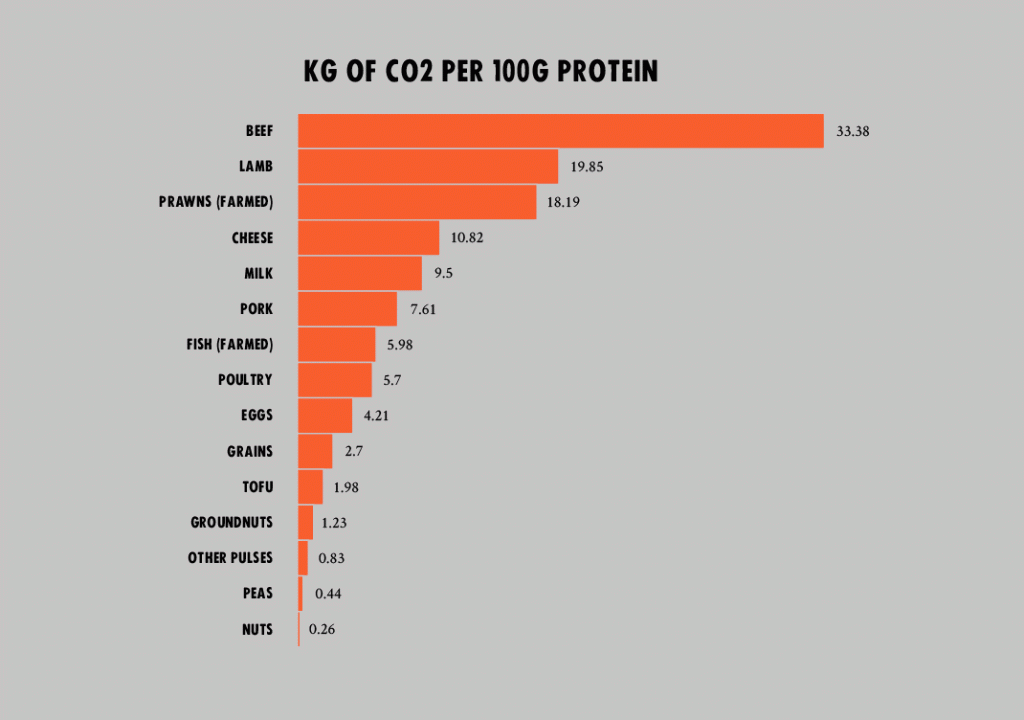
Scientists say that if we want to protect the planet from the dangerous impacts of climate change there needs to be a huge reduction in the amount of meat we eat. In particular, the amount of beef eaten by people in Western countries needs to fall by a whopping 90%. Sadly, choosing grass-fed or organic varieties doesn’t actually help much. The 1.5 billion cows on our planet burp and fart a total of 345 billion litres of methane every single day.
How come forests and land are suffering from meat consumption?
Clearing forests releases the same amount of carbon every year globally as driving 600 million cars, with an area of forest the size of Panama (that’s more than 70,000 sq km) is being lost to livestock production each year. Deforestation in the Brazilian Rainforest is now occurring faster than three football fields a minute. Deforestation, cow burps and farts, and fertilisers produce as much greenhouse gases as all the world’s cars, lorries and planes put together.
Whilst 80% of the world’s farmland is used for livestock, it provides us with less than 20% of the calories, and about a third of our protein. In addition, one third of the world’s crops are currently being used to grow food for these animals, which could be far more efficiently fed directly to humans. Not to mention the fact that producing a kilo of chicken requires 14 times more water than for a kilo of tomatoes, cabbages or potatoes, and a kilo of beef requires 50 times more water. It’s easy to see that the meat and dairy industry is an extremely inefficient and high-emissions way to use the Earth’s limited resources to feed us.

Stop wasting stuff I don’t eat
A whopping one third of the world’s food is wasted every year. If we all only bought what we actually needed, we could go a long way towards solving the world’s food problems and reducing global warming.
Around 1.3 billion tonnes of household food is wasted every year. That’s equivalent to a mountain over 8 times the height of the Eiffel Tower, and 3km across.

Avoid food that’s been flown in
Food flown into the UK emits a hundred times more carbon dioxide than food that’s been shipped in.
The best you can do is buy local, but more importantly, in season. Local is not always the answer however – for example tomatoes grown out of season in a heated UK greenhouse actually have three times the carbon footprint of importing them from Spain, where the greenhouses don’t need to be heated. Food labels generally won’t tell you how produce has been transported, but look out for highly-perishable fresh produce like asparagus, green beans and berries from a distant origin, as the chances are it’s been air-freighted.
Whilst transport emissions certainly play a part in the carbon footprint of your diet, focusing on what you eat will have a much greater impact.
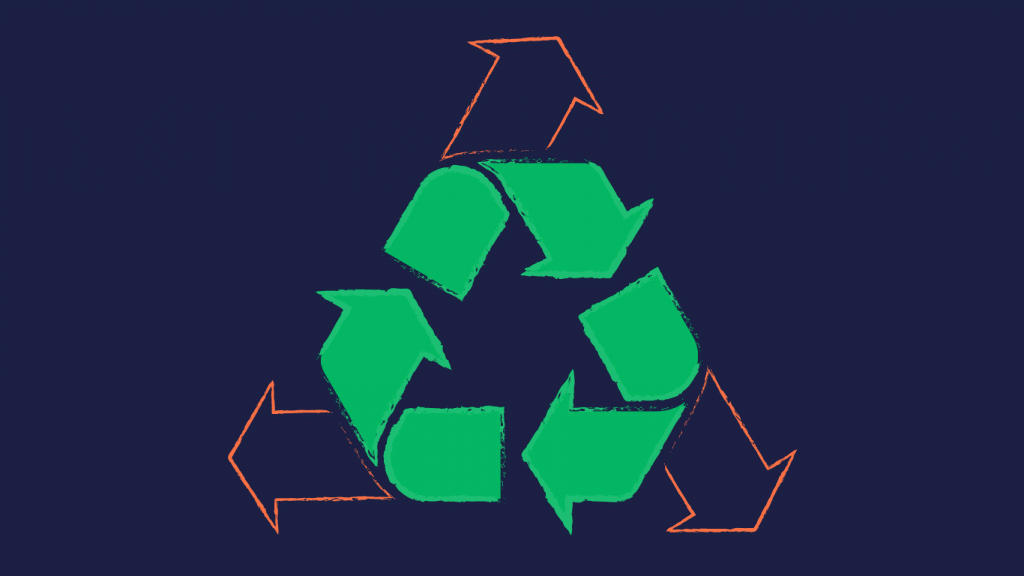
Know the inconvenient truth about recycling
Unfortunately due to a broken system, a huge proportion of ‘recycling’ ends up in the ocean, buried in landfill or even being burned. It’s still better to separate recyclable items from landfill, but the best option is to reduce the amount of plastic that you use.
What really happens to my rubbish?

Vote with the climate in mind
Whenever an election comes around, it is your chance to decide what kind of country you want to live in. Those elected will have the power to shape a clean, green, low-carbon future for generations to come, so try to think long term when casting your ballot.

Switch to a clean energy provider
Today there are many companies who provide 100% renewable energy, at little to no extra cost. As with airlines, be aware of companies who ‘offset their carbon’ to reach carbon neutrality – these schemes are often ineffective and simply allow energy providers to continue burning fossil fuels. Go for one that purchases their own energy directly from renewable generators.
See how your energy provider performs here.
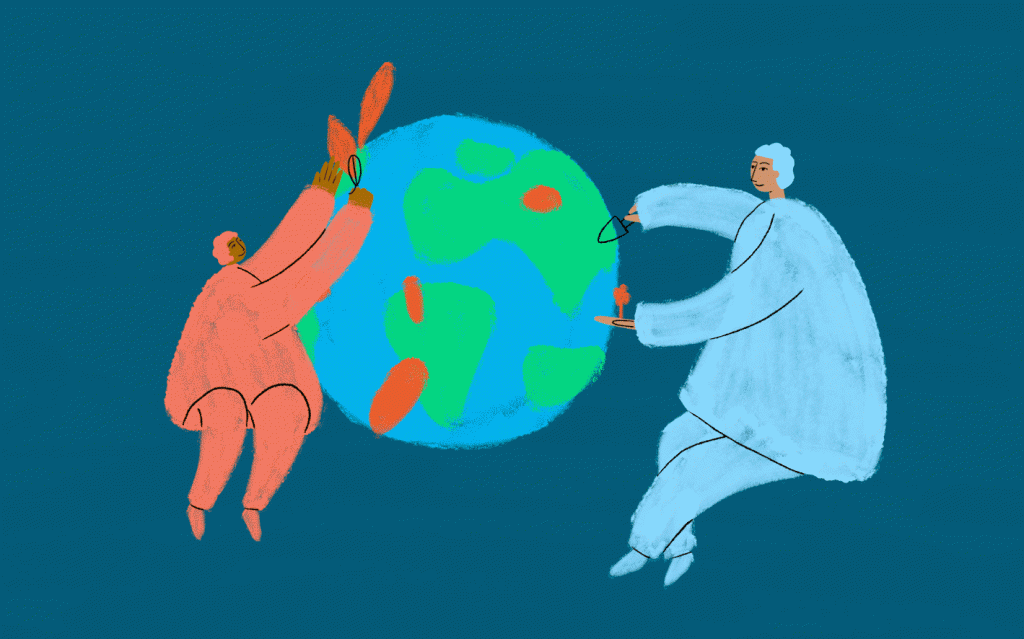
Donate to those worst affected by climate change, fund new green projects and more
Your support can help environmental organisations continue their vital work. 350.org needs help in its mission to end the age of fossil fuels and build a world of community-led renewable energy for all. Greenpeace needs help protecting our forests, oceans and air. Extinction Rebellion needs help raising awareness, training rebels, and supporting volunteers who’ve sacrificed their livelihoods. It’s best to do some research of your own to find a cause that’s meaningful to you.

Switch Your Bank
Unknowingly, your money might actually be funding the climate crisis – globally, 35 banks are financing the fossil fuel industry with £2 trillion. Among UK-based banks, Barclays and HSBC have given £158 billion to fossil fuel industries since the Paris Agreement, making them the worst offenders in Europe. In addition, a whopping 15% of global carbon emissions come from investments made through the City of London – one of the world’s largest financial centres for fossil fuel corporations.
Check how your bank performs here. You may find a better option.

Buy Less Stuff
We perpetuate the system by purchasing an excess of things. Live more frugally and when you do need to purchase something, follow the guidance to make sure your impact is minimal.
More on that here from Hope College: Living Sustainably: Less stuff is more sustainable and Science Daily: Buying less is better than buying ‘green’.
Ethical Consumer and Hubbub can help you stay informed.
However, whilst stopping flying, switching to a plant-based diet and using more public transport are certainly things we can all do to help, along with insulating our homes, switching to a green energy provider and cutting down on the carbon emissions embedded in products we import – such as by boycotting fast fashion and buying clothes second hand or items that are ‘made to last’ – individual action is not going to get us out of this mess.
OK SHOW ME THE FILM
……
The Gigantic Change is a story of hope set in the future, looking back at how the world came together to try to save the environment.
Voiced by Whoopi Goldberg, the film shows that a brighter future is in fact possible, where we live in harmony with nature rather than being its master. But we will only get there if we all work together to transform the planet.
The time for action is now.
]
FULL CAST & CREW
Grandmother: Whoopi Goldberg
Granddaughter: Livia Nelson
Co-Directors: George Lewin & Nicola Jane Francis
Story: George Lewin
Co-Writers: Nicola Jane Francis & Josh Hughes
Producer: Serena Schellenberg
Executive Producer: Belle Palmer at Passion Pictures
Designer & Animator: Nicola Jane Francis
Sound Designer: Chris Banks
Music Composer: Simon Chamberlain
Casting Director: Nicci Topping Casting
Livia Nelson represented by: Creative Kidz & Co
Voiceover Recording: Factory Studios
Partnerships Consultant: Sarah Greenfield Clark
.
Statistical correction:
It has come to light that the statistic referenced at 02:33 in the film is from a scientific paper which is now outdated. Instead of ‘almost half of all species on Earth will be extinct’, a more accurate current estimate is ‘up to 1 million more species could be extinct, due to human activity’.
Website by Erik Hartin, Moa Pårup and George Lewin. Thanks to Dr Emily Grossman, with the support of the XR Scientists community, for their invaluable support in formulating the content for The Gigantic Change website, and to Jonathan Mintram and Beverly Luckings for pushing the film out into the world.
